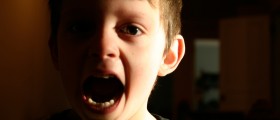My stepdaughter is 11 and rocks/bangs in her sleep. I've mentioned my concerns to my husband several times and he said the doctors tell him this is normal. I don't believe it and I know it isn't. She was diagnosed with ADHD and generalized anxiety disorder quite awhile ago and has some learning disabilities, but otherwise she's a normal kid. I want to get her some help and I'm not sure who/where to turn to. Any suggestions are greatly appreciated. Thank you.
Loading...
Hello, guest.
It's understandable that you're concerned about your stepdaughter's sleep behavior, especially given her diagnosis of ADHD and generalized anxiety disorder. While some movement during sleep is normal, excessive rocking or banging can be a sign of a sleep disorder or other underlying issues. Here are some steps you can consider:
-
Pediatrician or Family Doctor: Start with a visit to her pediatrician or family doctor. They can provide a preliminary assessment and determine if her sleep behavior is within the normal range or if it warrants further investigation.
-
Sleep Specialist: If her primary care doctor suggests, you may want to consult a sleep specialist. These specialists can conduct more in-depth evaluations, such as sleep studies, to understand what might be causing the sleep disturbances.
-
Child Psychologist or Psychiatrist: Since she has been diagnosed with ADHD and anxiety, consulting a child psychologist or psychiatrist could be beneficial. These professionals can help in understanding if her sleep behavior is linked to her psychological condition and can offer therapy or treatment plans.
-
Occupational Therapy: Sometimes, children with learning disabilities and ADHD benefit from occupational therapy, which can include strategies for better sleep.
-
Behavioral Therapy: Techniques like Cognitive Behavioral Therapy (CBT) can be effective for anxiety and might indirectly help with her sleep issues.
-
Consistent Sleep Routine: Establishing a consistent bedtime routine, ensuring a comfortable sleep environment, and limiting screen time before bed can be helpful for children with sleep difficulties.
Remember, every child is unique, and what works for one might not work for another. It's essential to approach this with patience and understanding, keeping in mind that finding the right solution might take some time and experimentation.
Loading...
















